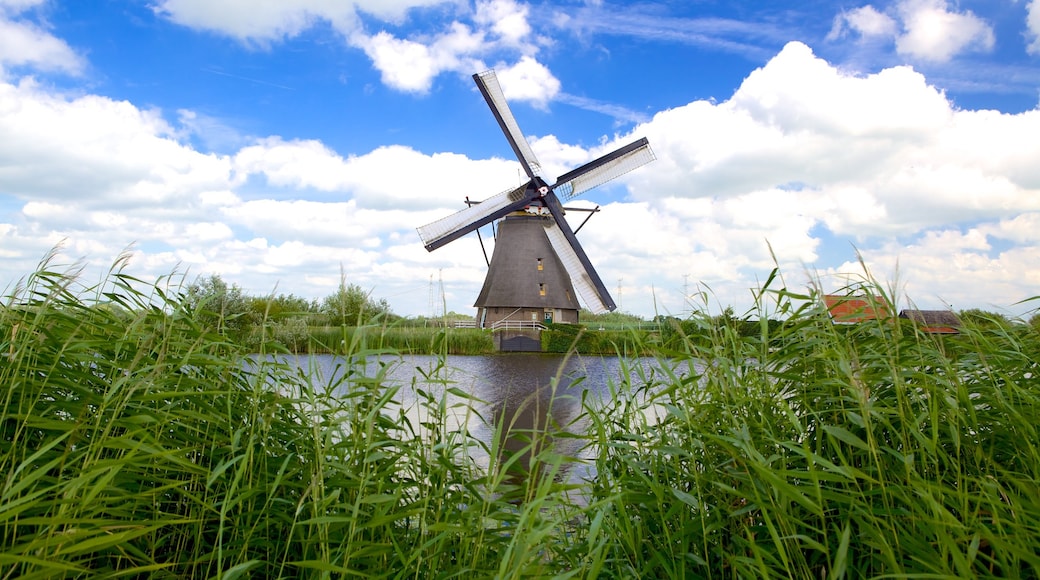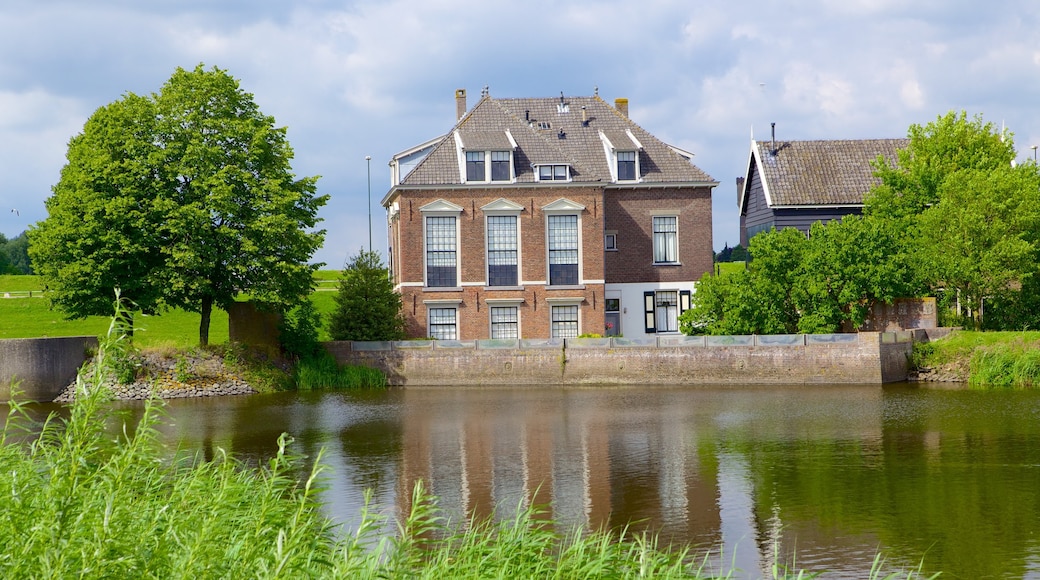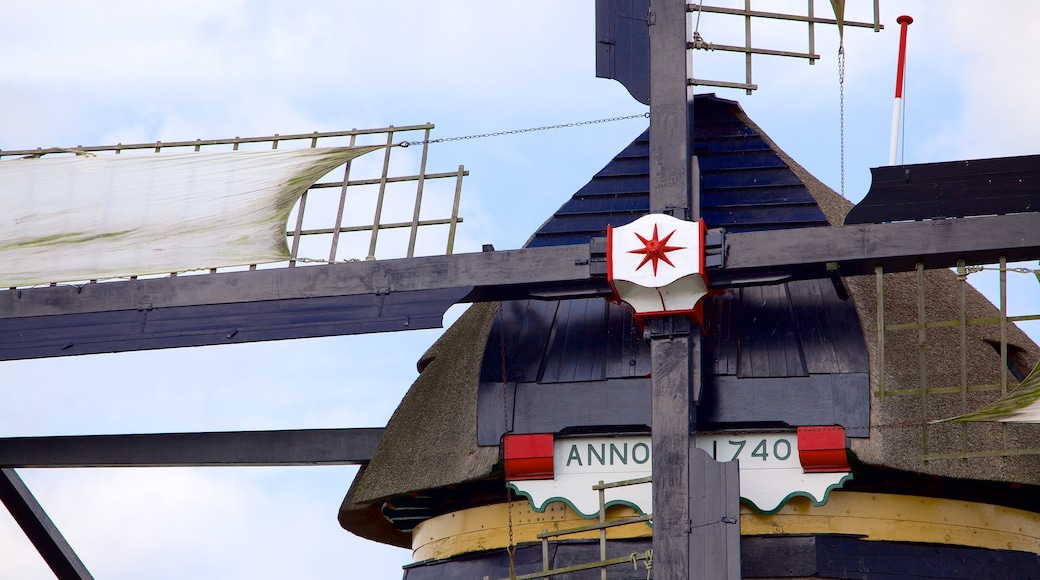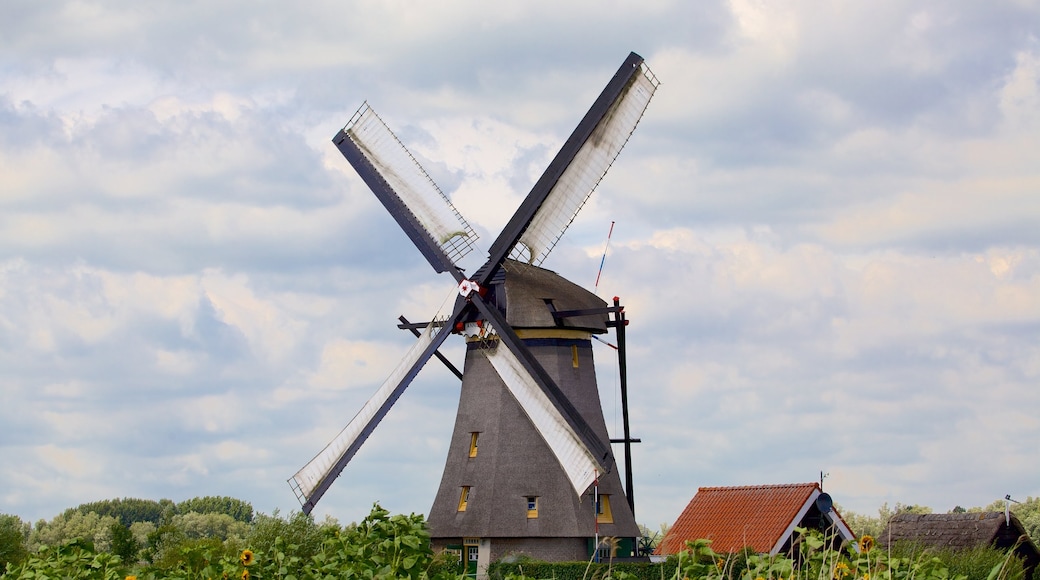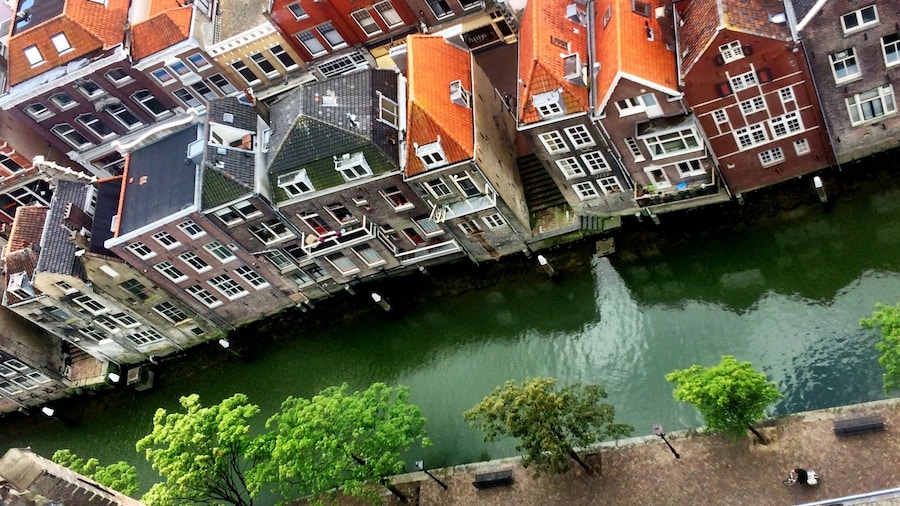See the largest collection of authentic windmills in the Netherlands as you cycle or hike through this picturesque World Heritage site.
Admire the well-preserved windmills and learn more about the Dutch efforts to claim land from the water at Kinderdijk. This UNESCO-listed site features 19 historic windmills, which were erected to prevent the village from being destroyed by water. Though they are no longer used for this purpose, the original windmills remain standing on the canal edges, looking out over the bleak and beautiful surrounding marshland.
Constructed in 1740, the windmills of Kinderdijk were built to pump water from the marshland between the Lek and Noord rivers into a nearby reservoir. Two modern pump houses have since taken over this job but all 19 windmills on either side of the canal remain in working condition.
Stroll along the canal and admire the perfectly preserved 18th-century windmills. Many people choose to discover the area on two wheels and several shops in the village offer bikes for rent throughout the year. Come in the summer to see the canals at their prettiest, when lily pads float on the surface and birds dip their bills into the water. During winter, the canals often freeze over.
As you explore, note the different types of traditional Dutch windmill present here. There are shorter hollow post mills as well as some of the tallest rotating cap mills in the country, which were built to catch as much wind as possible.
If you are interested in the mechanics of these amazing machines, be sure to step inside the Museum Windmill Nederwaard, housed in one of the old windmills. See how the various components work together to create the completely wind-driven water pump.
A short walk from here you’ll find the new pumping stations, where you can stop by the intriguing visitors’ centre. Examine a digital scale model of the area and sit back and watch a film about the history of Kinderdijk and the importance of its windmills.
Kinderdijk can be reached by bus or waterbus from the centre of Rotterdam. There is an admission fee to enter the pump house visitors’ centre. If you are visiting during the months of July and August be sure to come on a Saturday when the windmills are in full operation.
